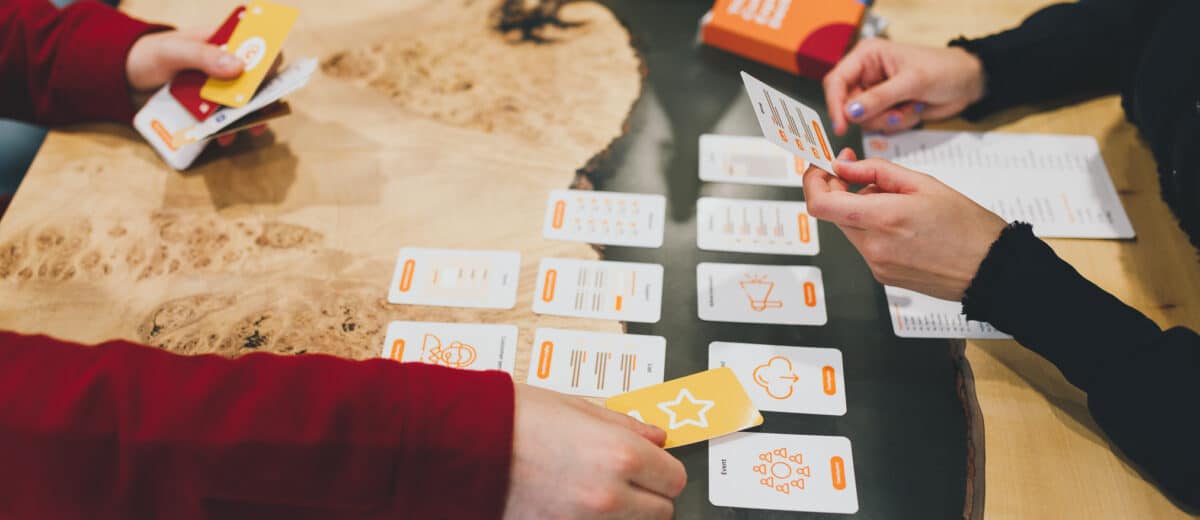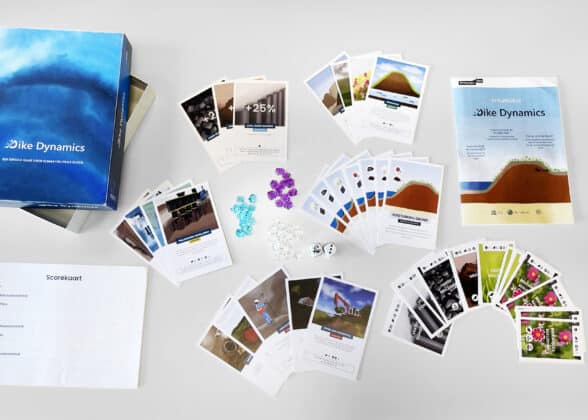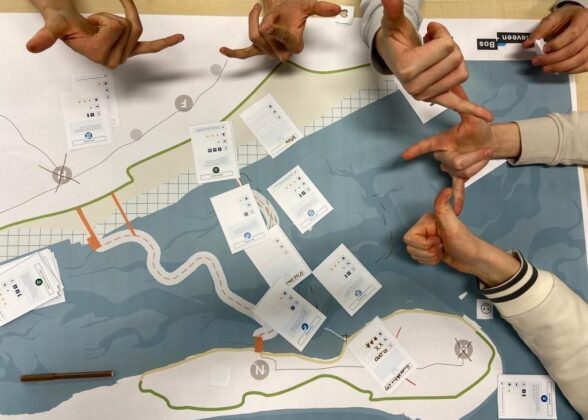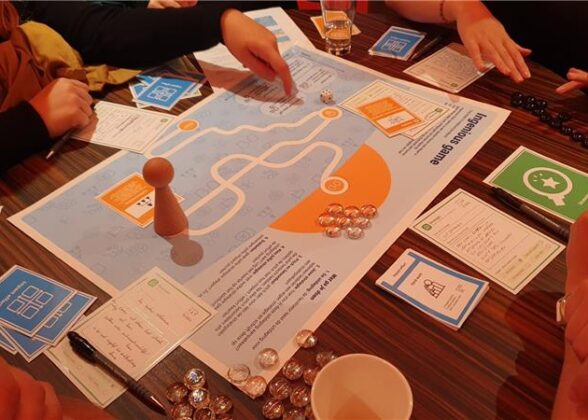
The power of serious games: Learn, connect and develop through play
The other day, I was talking to a colleague about a question from her project: how do you effectively involve residents in mobility plans for a residential area? In our projects for public clients, these kinds of questions arise regularly. How do you gather the right input, make well-considered choices, and ensure that residents feel ownership of the plans?
My colleague aptly put it, ‘We need something to not only inform residents, but to actively involve them, so they can experience the impact of their choices themselves.” This gave us the idea of using a serious game. But how do you approach such a thing, and what do you need to pay attention to to make it successful?
What are Serious games?
Serious games are games designed with a purpose other than pure entertainment. They are deliberately used to develop skills, influence behaviour or transfer knowledge – in a game format that is motivating, interactive and impactful. In other words, they are learning or change tools packaged as games. There are different types of serious games:
- Simulations in which players reenact realistic scenarios (e.g. crisis management)
- Strategy games in which choices lead to different outcomes (e.g. policy-making)
- Cooperative games that encourage cooperation, communication and team dynamics
What all these games have in common is that they let participants learn by doing. Through feedback mechanisms, players learn from their choices and organizations can measure the game’s effectiveness based on behaviour and performance.
Why serious games?
Organizations are looking for more effective and people-centred ways to stimulate learning and development. In this, serious games offer a powerful and attractive alternative to traditional learning methods. The advantages at a glance are as follows:
- Active and experiential learning: Instead of passively absorbing knowledge, participants make their own choices and experience the consequences directly. This enhances the learning effect and makes the process more meaningful and lasting.
- Better cooperation and communication: Players work together towards a common goal. In doing so, they exploit each other’s strengths, improve mutual communication, and grow understanding of different perspectives.
- Insights into behaviour and decision-making: Every decision within the game provides valuable data on behaviour and choices. These insights help improve internal processes or sharpen policy.
- Flexibly deployable and customizable: whether for team development, participation processes or policy issues, serious games are adaptable to any context and target group.
3 examples of serious games
What does that look like in practice? We show it through a few games we have been working on:
Dike Dynamics – Building sustainable water safety
Dike Dynamics is a game in which different stakeholders – from local residents to policymakers and project engineers – work together to strengthen dykes. The aim is to build a dike that remains reliable for 150 years, with as little environmental impact as possible. The winner is the one who collects the most environmental points, but only if the dyke actually lasts
This game allows players to test different scenarios and discover how their choices affect the final outcome. It encourages cooperation and creates conversations between various groups. By working with industry experts to create a realistic representation of the dike and water safety, participants can gain a good understanding of what is involved in such projects.

Ameland-game – Environmental management in practice
The Ameland game lets players experience interactively how complex decision-making can be in spatial and infrastructural projects. The game is based on the Ameland-Vasteland case study, but is easily adapted for other tasks, such as energy transition, area development or mobility.
We first let young people build their ideal solution with “building block cards” depicting different alternatives. Then they faced realistic constraints, such as environmental regulations or legal frameworks. This forced them to renegotiate and make choices. This taught them how valuable participation and cooperation are in this dynamic playing field

Ingenious –Innovation through collaboration
Ingenious is a cooperative board game that helps teams learn interactively how to successfully collaborate to drive innovation. Innovation is essential for tackling social issues, but often proves more difficult than expected. Ideas come too early, too late, or do not always reach the right people.
In this game, teams work on recognizable challenges from, for example, the construction sector. They develop strategies together, make use of each other’s expertise, and look for feasible solutions, without losing sight of their energy levels. Ingenious shows participants in a playful way what it takes to really get innovation moving.

Want to get started?
Do you have a complex issue where different interests converge? Do you want employees to learn actively? Or are you looking for ways to make participation meaningful? Then a serious game is worth considering. Whether you work in government, education, care or business, a well-designed game can make the difference between “talking about” and “experiencing together”.
Curious what it can do for your organization? Or do you have a challenge where game design can help? Let us know. We’d love to think along with you.
Curious on how to apply serious games in your organisation or project?
is ready to answer all your questions.
 GriDD
GriDD 

